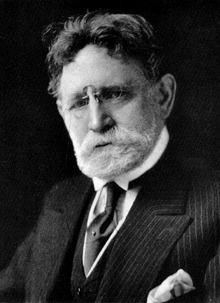
Back جي. هاميلتون لويس Arabic جيه. هاميلتون لويس ARZ جی. همیلتون لوئیس AZB J. Hamilton Lewis German جی. همیلتون لوئیس Persian James Hamilton Lewis French ג'יימס המילטון לואיס HE J. Hamilton Lewis Hungarian J. Hamilton Lewis Swedish
J. Hamilton Lewis | |
|---|---|
 | |
| Senate Majority Whip | |
| In office March 4, 1933 – April 9, 1939 | |
| Leader | Joe Robinson Alben W. Barkley |
| Preceded by | Simeon D. Fess |
| Succeeded by | Sherman Minton |
| In office May 28, 1913 – March 3, 1919 | |
| Leader | John W. Kern Thomas S. Martin |
| Preceded by | Position established |
| Succeeded by | Charles Curtis |
| United States Senator from Illinois | |
| In office March 4, 1931 – April 9, 1939 | |
| Preceded by | Charles S. Deneen |
| Succeeded by | James M. Slattery |
| In office March 26, 1913 – March 3, 1919 | |
| Preceded by | Shelby Cullom |
| Succeeded by | Medill McCormick |
| Member of the U.S. House of Representatives from Washington's at-large district | |
| In office March 4, 1897 – March 3, 1899 | |
| Preceded by | William H. Doolittle |
| Succeeded by | Francis W. Cushman |
| Personal details | |
| Born | James Hamilton Lewis May 18, 1863 Danville, Virginia, C.S. |
| Died | April 9, 1939 (aged 75) Washington, D.C., U.S. |
| Resting place | Fort Lincoln Cemetery, Brentwood, Maryland |
| Political party | Democratic |
| Spouse |
Rose Lawton Douglas
(m. 1896; death 1939) |
| Education | University of Virginia Ohio Northern University Baylor University |
| Occupation | Attorney |
James Hamilton Lewis (May 18, 1863 – April 9, 1939) was an American attorney and politician. Sometimes referred to as J. Ham Lewis or Ham Lewis, he represented Washington in the United States House of Representatives, and Illinois in the United States Senate. He was the first to hold the title of Whip in the United States Senate.
Born in Danville, Virginia and raised in Augusta, Georgia, Lewis attended several colleges, studied law, and attained admission to the bar in 1882. He moved to Washington Territory in 1885, where he became active in politics as a Democrat; he served in the territorial legislature, worked with the federal commission that helped establish the U.S.-Canada boundary, and ran unsuccessfully for governor. He served in the United States House of Representatives from 1897 to 1899.
After service in the Spanish–American War, Lewis relocated to Chicago, Illinois. After serving as the city's corporation counsel, and running unsuccessfully for governor, Lewis won election to the United States Senate in 1912, and served one term (1913-1919). He was chosen to serve as Majority Whip, and was the first person to hold this position. He ran unsuccessfully for reelection in 1918, and for governor in 1920. In 1930, he was again elected to the U.S. Senate, and served from 1931 until his death. He died in Washington, D.C., and was interred first in Arlington, Virginia, and later at Fort Lincoln Cemetery in Brentwood, Maryland.